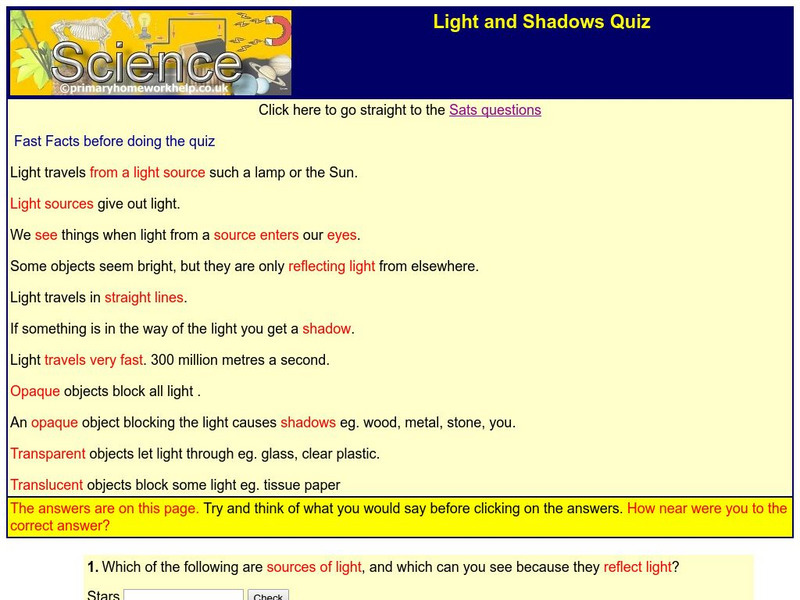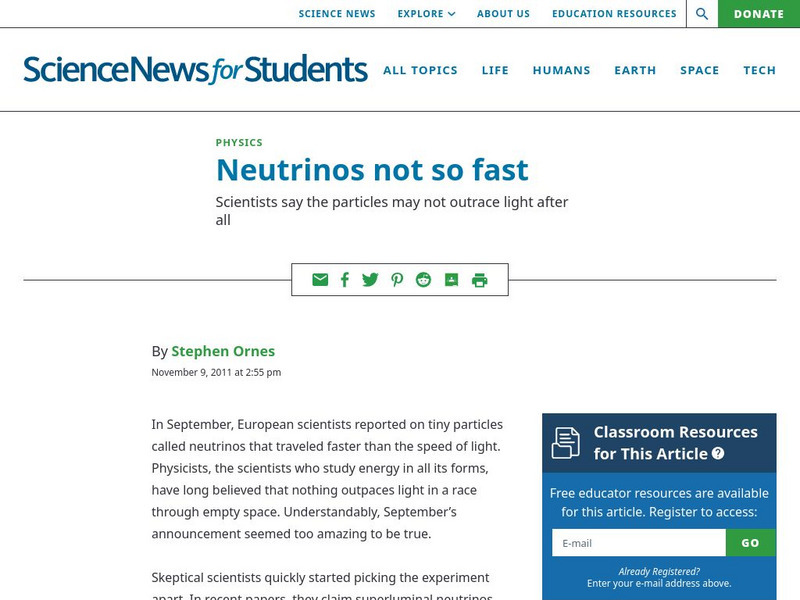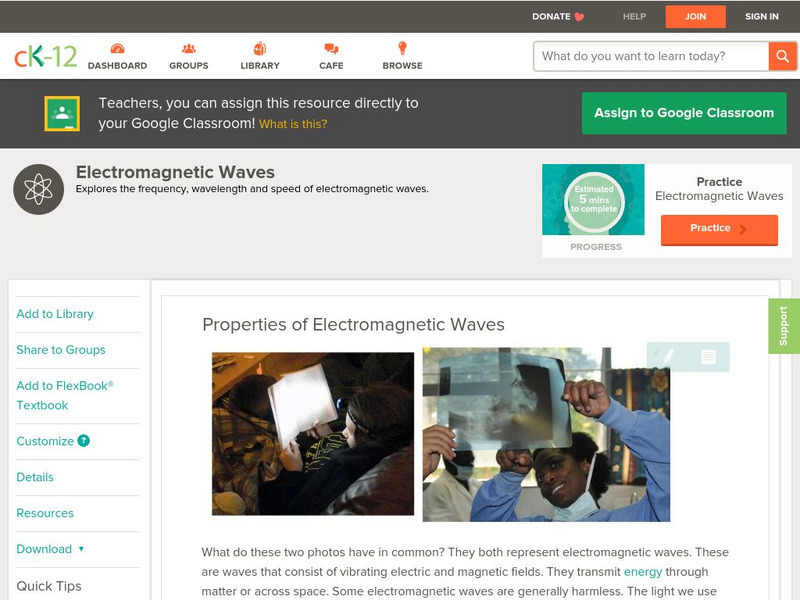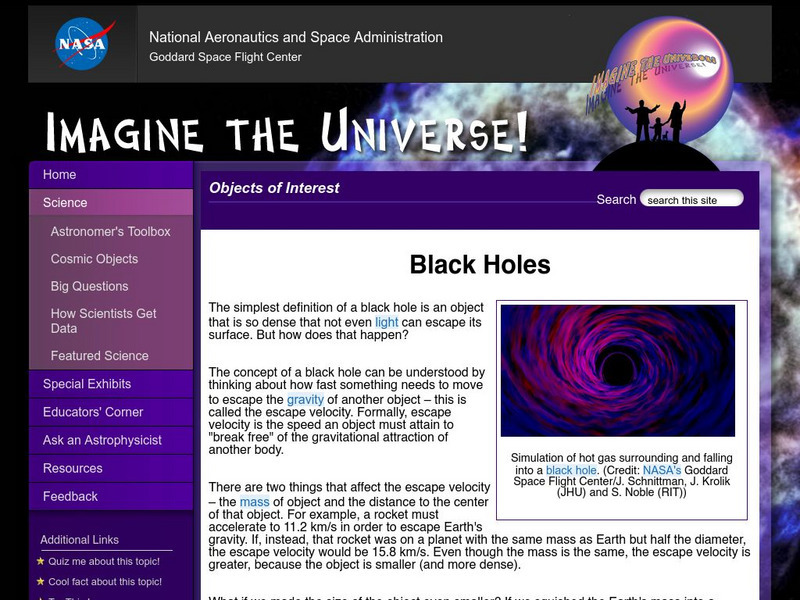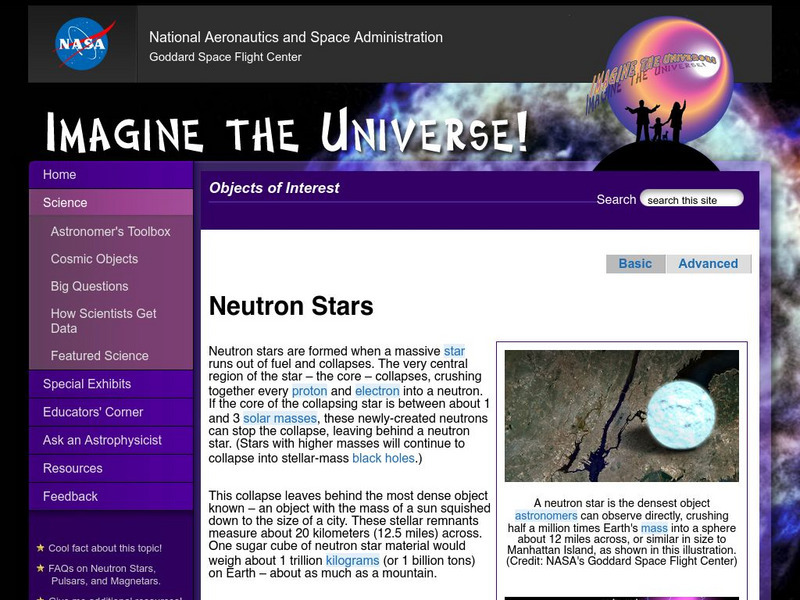Project Britain
Primary Homework Help: Light and Shadows Quiz
This resource provides information about light and shadows. In addition, there is a short quiz that can be taken.
Society for Science and the Public
Science News for Students: Neutrinos Not So Fast
Discusses the validity of research showing that neutrinos travel faster than the speed of light.
Open Curriculum
Open Curriculum: Electromagnetism
This article helps explain the concept of electromagnetism as well as magnetic fields and the properties of the speed of light.
Science Buddies
Science Buddies: Measuring Speed of Moving Objects With Stroboscopic Photography
A strobe light can illuminate an entire room in just tens of microseconds. Inexpensive strobe lights can flash up to 10 or 20 times per second. This project shows you how to use stroboscopic photography to analyze motion.
Science Buddies
Science Buddies: Focusing Your Flash for 'Freezing' Motion
Here's an interesting flash photography project. With an inexpensive Fresnel lens, you can concentrate the light from your flash. You'll be able to shoot with a smaller aperture and a shorter flash duration. This will give you a greater...
CK-12 Foundation
Ck 12: Fourth Grade Science
This customizable digital textbook covers topics related to fourth-grade science. It is Next Generation Science Standards (NGSS) aligned.
Ducksters
Ducksters: Physics for Kids: Theory of Relativity Light and Time
Kids learn about the speed of light and time dilation in regards to the theory of relativity in the science of physics. Also how gravity can change the passage of time.
CK-12 Foundation
Ck 12: Physical Science: Properties of Electromagnetic Waves
[Free Registration/Login may be required to access all resource tools.] The speed of electromagnetic waves, their wavelengths and frequencies and how to calculate wavelength or wave frequency.
Wolfram Research
Wolfram Science World: Maxwell, James
This ScienceWorld site describes the Scottish mathematician and physicist James Maxwell (1831-1879) who published physical and mathematical theories of the electromagnetic field.
Science Struck
Science Struck: Kinetic Energy Formula
Explains what is meant by kinetic energy and demonstrates how to use the formulas for a point mass moving at less than the speed of light, for rotational motion, and for a mass moving at a relativistic speed. Includes interactive...
CK-12 Foundation
Ck 12: Physical Science: Refraction
[Free Registration/Login may be required to access all resource tools.] Refraction of light in matter and how light changes its speed and angle of refraction according to the type of medium it is travelling through.
Wolfram Research
Wolfram Science World: Roemer, Olaf
This ScienceWorld site provides a biographical sketch of Olaf Roemer and describes his most notable scientific discoveries such as the first good estimate of the speed of light.
Ducksters
Ducksters: Physics for Kids: Light
Kids learn about the science of light. Energy made of waves and particles called photons traveling at the top speed in the universe. What is refraction? The difference between transparent, translucent, and opaque.
NASA
Nasa: Imagine the Universe: Black Holes
Learn what black holes are and the myths that surround them.
CPALMS
Moving on Up
[Free Registration/Login Required] During this MEA simulation, kindergarten students will be preparing for a move to another state. Students must work in cooperative groups as they determine which moving company will be the best for...
NASA
Nasa: Imagine the Universe: Neutron Stars and Pulsars
Discover what neutron stars and pulsars are and view pictures of them. Includes links to additional resources and lesson plans.
Trinity College Dublin
The History of Mathematics: Roemer
A short biographical sketch of the life and work of Ole Roemer (1652-1719 CE). Identifies his scientific discoveries and contributions in astronomy.
Other
Einstein Archives Online
Online access to portions of Einstein's original papers and manuscripts.
Open Curriculum
Open Curriculum: Velocity and Relative Motion
An illustrated article helps physics students learn about center of mass and velocity, and define the concept of inertia.


